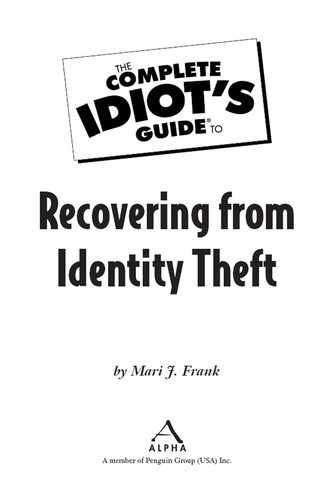Spousal Identity Theft
When the identity thief is your spouse or former spouse (during divorce), the situation gets particularly tricky. In most states, the law treats both parties’ debts as marital property for which you are jointly held responsible. Your husband or wife had a fiduciary duty to ask your permission before applying for even a joint account using your Social Security number. While you are married, absent a premarital agreement for each of you to keep your property separate, you will be responsible for joint debts. If there is an existing joint bank or credit account, then the spouse would have had the right to do anything with it that you could have done. In other words, under the law, there may have been no fraud at all while you were married and living together. If you are separated, then the situation may be different.
If you are in the middle of a divorce proceeding and no longer in the same residence, identity theft is easier to prove. Identity theft can also be a weapon for one spouse to get revenge against the other. As both a privacy attorney and a family-law attorney, I have seen many cases of mean-spirited identity theft by one spouse attempting to discredit the other and gain advantage in divorce or custody proceedings.
If your spouse is using your Social Security number or stealing your identity, it’s time for marital counseling. If that fails, it’s time to cut your losses and dissolve the marriage. If you decide to separate, once you live apart, contact the CRAs as Chapter 4 explains. But instead of disputing any of the accounts, explain that you are legally and financially separated from your spouse. Cancel joint accounts, but get your own credit cards first.
You may put a 100-word statement on your account that you are separated and that no joint account is to be issued and that you don’t authorize your former spouse to be an authorized user of your accounts. Put a new password on your own accounts. Also, place a fraud alert on your account not to issue credit without calling you first on your cell phone. You may also consider a credit freeze if you are not in need of new credit in the near future
The Least You Need to Know
♦ It is best to make a police report no matter what, even when you know the identity thief. If you are reluctant to involve law enforcement, confront the person and ask him or her to admit the truth in an affidavit.
♦ Realistically, if the impostor signs an affidavit and promises to pay, police won’t investigate or send a case to the district attorney.
♦ Before “covering” for a relative, consider that you will have financial losses, your credit will be likely ruined, and you will enable that person to do it again, and you will be angry at yourself as well.
♦ If your spouse uses your Social Security number to apply for credit or services, the fact that you are (or were) married will probably make it challenging to clear up identity theft.
♦ If the spouse’s behavior continues and you need to divorce, handle the misuse of your Social Security number as fraud and address it with your family-law attorney.
..................Content has been hidden....................
You can't read the all page of ebook, please click here login for view all page.
